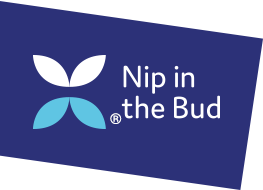Watch our Films
My Voice Matters
A short film highlighting the many voices of children and young people we feature in our films and why it’s important to support their voices to be heard.
OCD in children: Tips For Teachers
This 4 minute film gives Tips for Teachers who may have concerns that a child in their class has Obsessive Compulsive Disorder (OCD).
Read and download our fact sheets, watch more videos or sign up for our mailing list and free interactive guide.
OCD in Children Information Film
A child with Obsessive Compulsive Disorder (OCD) is likely to experience both intrusive thoughts (obsessions) and repetitive behaviours (compulsions). Although many children can experience some of these symptoms at some time in their lives, they are normally a sign of OCD when they start to interfere with normal daily activities. This film explains how to identify and help a child showing the symptoms of OCD.
Read and download our fact sheets, watch more videos or sign up for our mailing list and free interactive guide.
OCD And Me: Real Life Child Mental Health Experiences
In this film Olivia gives an honest and detailed account of her personal experience of the Obsessive Compulsive Disorder (OCD) which she had since the age of eight but wasn’t diagnosed till she was 15. It is an eye opener and should be watched by everyone who wants to understand what a person with OCD constantly goes through.
People may think that OCD is all about washing, checking, cleaning. These Repetitive Behaviours that we can see, are called Compulsions or Rituals. But what people cannot see are the Intrusive Thoughts which are called Obsessions. They are like a bully in the person’s head that keeps nagging that harm is going to come to them or to their loved ones if they do not complete the compulsions.
Nip in the Bud strongly believes that early intervention and support for children ensures far better outcomes.
Find out more about OCD in Children, read and download our fact sheets, watch more videos or sign up for our mailing list and free interactive guide.
How to Recognise Symptoms of Obsession/OCD
Find out more about OCD in Children, read and download our fact sheets, watch more videos or sign up for our mailing list and free interactive guide.
How to Recognise Symptoms of Compulsion/OCD
Find out more about OCD in Children, read and download our fact sheets, watch more videos or sign up for our mailing list and free interactive guide.
Further information:
OCD is a mental health condition where children engage in compulsive and repetitive behaviours to ease their anxiety, which can have a negative impact on their daily life. Early signs can include excessive worrying and feeling a strong sense of responsibility over yourself and others. A child or young person will ask for constant reassurance about whether their homework is correct or whether they are doing something right or being a good student as they no longer trust their own judgement.
Stress at school and bullying are key factors which exacerbate the development of OCD – the more overwhelmed a child feels, the more they give into their compulsive, repetitive behaviours to ease their anxiety. As a teacher, it is your duty to make sure the classroom is a safe space for all, keeping an eye on students who seem to be particularly struggling but also checking up on all students as conditions such as OCD are often invisible and very hard to spot.
It is important to consider the implications of OCD based on a child’s cultural background. As a teacher, you must consider who the best person to contact is if you are noticing OCD tendencies in a student. It is important a child with OCD receives the right treatment at the right time.

